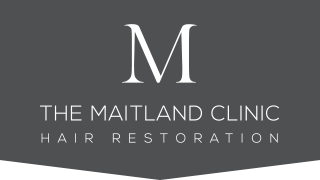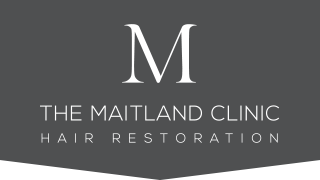Hair thinning treatments
11th June 2024

Hair thinning is often one of the first signs of hair loss. Although it’s a very common concern impacting millions of people worldwide, it often leads to significant emotional and psychological distress.
So what do we actually mean when we talk about hair thinning?
Hair thinning is essentially one of the first signs of hair loss (medically known as alopecia). It can manifest in different forms, such as diffuse thinning, where hair loss occurs evenly across the scalp, causing your hair to look thin in general. Some people also experience pattern thinning, where hair loss occurs in distinct areas such as at the frontal hairline,on the crown, or along the central parting. This is often referred to as male or female pattern hair loss. Over time, hair thinning may lead to complete or partial hair loss.
The causes of hair thinning are multifactorial and can include:
- Genetics: Hereditary factors play a significant role in hair thinning, particularly in conditions like androgenetic alopecia, the most common form of hair loss.
- Hormonal changes: Hormonal imbalances, such as those experienced during pregnancy, menopause, or thyroid disorders, can lead to hair thinning.
- Medical conditions: Disorders such as autoimmune conditions, scalp infections, and chronic illnesses can cause hair loss. Medical treatments such as chemotherapy and other medication can also cause hair thinning or loss.
- Stress and lifestyle: High stress levels, poor diet, and lifestyle habits like smoking can contribute to hair thinning. Certain hairstyles may also exacerbate hair thinning.
- Seasons: Changes in the seasons and weather can impact our hair, causing more hair follicles to temporarily shed.
Understanding the underlying cause and type of hair thinning is crucial for selecting the most suitable treatment. Below, we discuss some of the most effective treatments for hair thinning.
Hair thinning treatments
Often, hair thinning indicates the early stages of hair loss. Because of this, hair restoration surgery is not usually the first line of treatment as this is typically for people with more advanced hair loss. We typically use the Hamilton-Norwood Scale to determine the stage of hair loss in men, and the Savin Scale to determine the stage of loss in women.
For people experiencing hair thinning, a wide range of innovative non-surgical (trichology) treatments exist which can help to combat hair thinning, promote fuller hair, and delay or stop the progression of hair loss.
Medication
Various medications can help with hair thinning, including:
- Minoxidil (oral or topical)
- Finasteride (oral or topical)
- Dutasteride (oral or topical)
- Spironolactone (women)
The medications vary in their mechanisms of tackling hair loss, and may also present some potential side effects to consider. At The Maitland Clinic, we conduct a full medical consultation to understand your specific hair thinning, helping us to recommend the most suitable medication option to meet your needs. We also take the time to talk through the safety and effectiveness of each treatment.
Learn more about hair thinning medication.
Laser treatment
Low-level laser therapy can help to improve hair density and scalp condition, boosting the appearance of thinning hair to make it appear healthier and thicker. Specific wavelengths of light are passed through the scalp and absorbed by hair follicle cells. This starts a series of cellular reactions that help encourage hair growth.
Platelet-rich plasma
Platelet-rich plasma (PRP) treatment involves taking a small blood sample from you. This sample is then treated to concentrate the platelet cells, which are blood cells that are rich in growth factors. This sample is then reintroduced to your scalp. The increase in growth factors in the scalp region encourages cell regeneration and the development of healthier hair follicles.
PRP treatment is considered very safe and is often used to treat other medical conditions. Early studies have shown promising results, indicating that PRP treatment can lead to increased hair growth. However, it is not currently approved by the FDA for treating hair loss because more research is needed in this field. This means that PRP treatment is considered experimental.
Hair care and lifestyle changes
Shampoos and products
Some hair products can help to improve hair thinning when they are targeting specific conditions. For instance, shampoos containing ingredients like ketoconazole or piroctone olamine can help to combat flaking, scaling, and itching on the scalp, which helps to treat disorders like dandruff, seborrhoeic dermatitis, and folliculitis. Tackling common hair concerns as such can help to improve the health of the scalp and encourage healthier hair growth. Certain products can also enhance the appearance of the hair, making it look visually thicker.
Diet and nutrition
Ensuring a balanced diet with enough protein, iron, and other essential nutrients is also critical for healthy hair growth. Although more research is needed in the field, it’s thought that being deficient in certain vitamins and minerals can lead to the development of alopecia. Research also suggests that having a diet rich in raw vegetables and fresh herbs may also help to reduce the risk of developing androgenetic alopecia, but again, further studies are needed to confirm this.
Making changes to your hair care products, or the food you eat, is usually only helpful for hair growth when a specific deficiency or condition is present. So when it comes to lifestyle changes, it’s essential to follow the guidance of a registered professional, such as a dermatologist, trichologist, or nutritionist. At The Maitland Clinic, we can help to provide or signpost you to the most appropriate support, considering all of your individual factors.
What results should I expect from hair thinning treatment?
Results vary between individuals and treatments. If you have a genetic reason for hair thinning, it’s important to note that you will likely always be contending with hair loss. Non-surgical trichology treatments can help to delay the progression of hair loss and are a great place to start. You may end up needing a surgical hair transplant later down the line for more long-term results.
Non-surgical treatments such as medication may help to stop hair loss and even promote healthier hair growth. We continually monitor your response to treatment and adjust treatment accordingly to help sustain positive results.
Hair thinning treatments at The Maitland Clinic
Whatever stage of hair loss you are at, our team of hair restoration specialists are here to help you achieve the best results possible.
To hear more about our hair thinning treatments or learn more about the work we do at The Maitland Clinic, contact us today by completing our enquiry form or calling us on 02392 706122.










